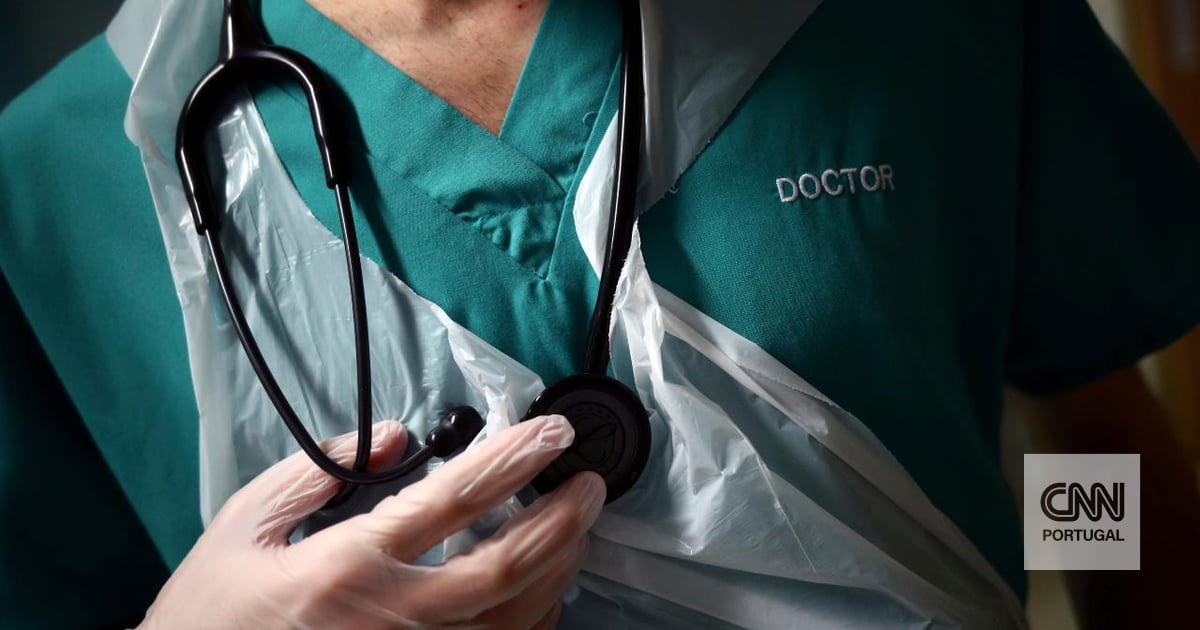Those who apply to practice medicine in Portugal must fulfill two requirements to register with the Portuguese Medical Association: have the course/degree recognized by any of the eight Portuguese medical schools and prove their ability to communicate in Portuguese.
pub
In the past three years, Portugal approved 42.2% of applications from candidates for doctors from foreign countries, three-quarters of them Brazilian, according to data from the Ministry of Science, Technology and Higher Education (MCTES).
Since 2019 – the year for which there is central data – Portugal has received a total of 1,674 applications to accept foreigners to practice medicine, having awarded 706 (as of December 14, 2021).
pub
Those who apply to practice medicine in Portugal must fulfill two requirements to register with the Portuguese Medical Association: have the course/degree recognized by any of the eight Portuguese medical schools and prove their ability to communicate in Portuguese.
A doctor from any EU country is automatically recognized in Portugal, under EU legislation – thus, to register with the Ordem dos Médicos, he will only have to take a medical contact test.
Spaniards with the highest success rate
However, for those who come from other places – and despite the fact that the law on recognition of academic degrees and diplomas of higher education awarded by foreign institutions also applies to Andorra, Moldova, Norway, UK, Russia, Switzerland, Turkey and Ukraine – this recognition is conditional, by the entity that It organizes the medical activity, by evaluating the academic, clinical and linguistic knowledge, first guaranteed by the Portuguese medical schools and, later, by the Ordem dos Médicos, with proof of medical contacts.
pub
pub
pub
Relatively speaking, the foreign candidates for doctors with the highest approval rate are Spaniards (84.4% of applications granted), followed by Ukrainians (78.8%), Germans (70%) and Italians (66.2%).
Of the 74.7% of applications from Brazilians, only 42.7% were approved – despite representing three quarters of the total number of applications approved (706).
In the past three years, all medical candidates from three countries – Cuba, Guinea-Bissau and Venezuela were rejected. Only one of the 29 applications submitted by Angolan nationals was approved.
“The qualification process is carried out entirely by medical schools” and aims to ensure that successful candidates “have recognized knowledge and are proven” to practice “good medicine” in Portugal (or, later, in a community space), with the same “” said the President of the Board of Portuguese Medical Faculties ( CEMP), Henrique Cyrne Carvalho, told Lusa, the “standard of requirements” imposed on national students.
With the exception of candidates from countries for which Portuguese is the official language, everyone starts by taking a communication test.
pub
pub
pub
After this exam has been passed – and with all candidates who do not have to take it – the next step is to assess the curriculum, with a ‘written test in the main areas of medical knowledge’, under the responsibility of the different medical schools (alternate and appointed). Region).
“It’s a national assessment, and the test is one for all,” assures Cyrne Carvalho. He points out that in this specific knowledge test, “about half” of the candidates fall by the wayside.
Candidates who then apply are subject to a “practical test, with the patient, called a ‘face test’, at each of the colleges in which they have applied. In this report, the percentage of leads was ‘starkly lower'”, also highlights the Director of the Institute Abel Salazar Biomedical Sciences of the University of Porto.
Finally, candidates must submit a master’s thesis, which is also required for Portuguese students who leave medicine courses with a master’s degree.
Once medical schools have passed the process – which takes “a whole calendar year”, says the head of CEMP – they can register to practice general practice, but not without first taking a medical communication exam, which is required by the Ordem dos Médicos and in which a different other representative is involved: Camões, It is an institute supervised by the Ministry of Foreign Affairs.
pub
pub
pub
“If you do not know how to speak Portuguese, you cannot practice. It is necessary to talk to patients and write in the clinical diaries”, justifies the president of Ordem dos Médicos, Miguel Guimarães, emphasizing that “the level of demand [da prova] Not too high.”
However, according to data from the same order, in 2021, out of 62 medical communication exam candidates, 11 were on the way – 11 had already been evaluated in various tests, including communication, by medical schools.

“Writer. Analyst. Avid travel maven. Devoted twitter guru. Unapologetic pop culture expert. General zombie enthusiast.”

